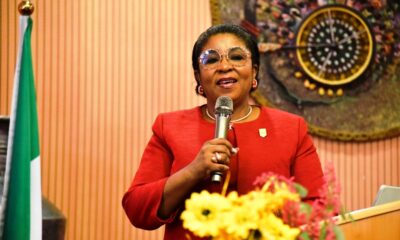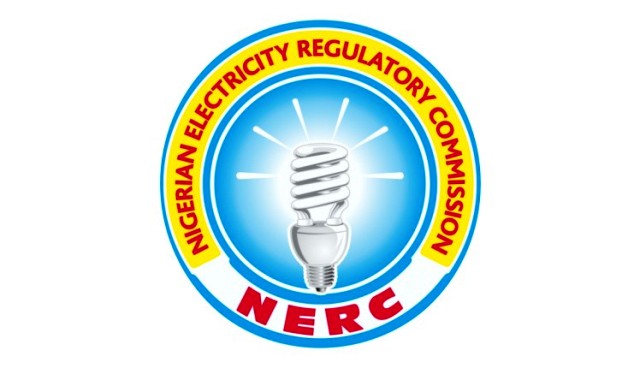Editorial
Still On Operation Crocodile Smile II
The Nigerian Army last Wednesday flagged off its military operation code-named “Operation Crocodile Smile II” in the Niger Delta States of Rivers, Bayelsa, Delta, Akwa Ibom and Cross River, amidst opposition from leaders and stakeholders of the region.
According to the Deputy Director, Army Public Relations, Col. Aminu Iliyasu, the military operation was designed to avail troops the opportunity to sharpen their combat skills in the conduct of land-based and joint maritime operations.
“Besides imparting on the troops, the importance of equipment maintenance, reconnaissance, inter-service and inter-agency co-operation and effective application of the Nigerian Army Code, the exercise will enable them become relevant to their area of responsibility, among others,” the Army spokesman said.
During the exercise, Iliyasu said the soldiers will also provide medical care to host communities, quick impact project and conduct sanitation exercises and distribute materials to schools.
However, these noble military objectives of the exercise fly in the face of the deluge of criticisms that have trailed not only its predecessor, “Operation Crocodile Smile I”, but also “Operation Python Dance II”, a similar military operation launched in the South-East geo-political zone that has left in its trail torture, arson and death.
In Rivers and Delta States in particular, the sad memories of Operation Crocodile Smile I still lingers in Bille and Ke communities where the troops destroyed houses and killed locals. In Gbaramatu Community, the entire community was sacked while the operation claimed the life of the community head.
In neighbouring Abia and Imo States, the gory details of the devastation, torture and death Operation Python Dance II left in its trail, are still unfolding.
It is against this sad commentary of the military operations that stakeholders have remained opposed to Operation Crocodile Smile II.
Stakeholders had argued that rather than float this second operation in the area, the Federal Government should develop the Niger Delta as no amount of militarisation of the region will stop the agitation or pacify the people. They argued that further militarisation of an environment already tensed and agitated would spark needless reactions and violence.
Last Tuesday, a coalition of Niger Delta groups accused President Muhammadu Buhari of a lack of commitment to peace in the area, arguing that “if the President is really committed to peace, the military would not be contemplating another phase of Operation Crocodile Smile in the Niger Delta”.
According to them, the “half-hearted” appreciation expressed by the President to the leadership of the communities was like deceiving them while asking the military high command to prepare for another military operation in the Niger Delta.
Like other stakeholders, we believe that the latest operation in the Niger Delta was ill-advised regardless of its amended mandate.
We believe also that one year after Pan Niger Delta Forum (PANDEF) visited Buhari which led to cessation of hostilities, the Federal Government ought to be making progress on consolidating the peace already achieved, instead of further militarising the region.
Indeed, the imbalances in the socio-economic fabric of the nation, which are reflected in under-development, deprivation, inequality, injustice, environmental degradation and agitations for resource control and devolution of powers cannot be resolved by military deployment or such military exercises as Operation Crocodile Smile.
We are surprised at the conciliatory template of the new Operation Crocodile Smile which emphasised troop fitness, adaptation to environment, core professional mandate and conduct of environmental sanitation exercises for the benefit of host communities as well as distribution of materials to schools. This is opposed to an earlier explanation from the military high command that the operations in all geo-political zones were to check violence, kidnapping, robbery and insecurity, among others.
Regardless of the toning down of Operation Crocodile Smile II, we insist that the current multiplicity of military operations around the country is a disincentive to the growth of our democracy and should be discouraged.
We therefore urge the Federal Government to, indeed, appreciate the elders of the South-South zone for their peace initiative and initiate positive response to issues presented to it to further de-escalate tension in the area.
A stitch in time, they say, saves nine.
Editorial
Making Rivers’ Seaports Work

When Rivers State Governor, Sir Siminalayi Fubara, received the Board and Management of the Nigerian Ports Authority (NPA), led by its Chairman, Senator Adeyeye Adedayo Clement, his message was unmistakable: Rivers’ seaports remain underutilised, and Nigeria is poorer for it. The governor’s lament was a sad reminder of how neglect and centralisation continue to choke the nation’s economic arteries.
The governor, in his remarks at Government House, Port Harcourt, expressed concern that the twin seaports — the NPA in Port Harcourt and the Onne Seaport — have not been operating at their full potential. He underscored that seaports are vital engines of national development, pointing out that no prosperous nation thrives without efficient ports and airports. His position aligns with global realities that maritime trade remains the backbone of industrial expansion and international commerce.
Indeed, the case of Rivers State is peculiar. It hosts two major ports strategically located along the Bonny River axis, yet cargo throughput has remained dismally low compared to Lagos. According to NPA’s 2023 statistics, Lagos ports (Apapa and Tin Can Island) handled over 75 per cent of Nigeria’s container traffic, while Onne managed less than 10 per cent. Such a lopsided distribution is neither efficient nor sustainable.
Governor Fubara rightly observed that the full capacity operation of Onne Port would be transformative. The area’s vast land mass and industrial potential make it ideal for ancillary businesses — warehousing, logistics, ship repair, and manufacturing. A revitalised Onne would attract investors, create jobs, and stimulate economic growth, not only in Rivers State but across the Niger Delta.
The multiplier effect cannot be overstated. The port’s expansion would boost clearing and forwarding services, strengthen local transport networks, and revitalise the moribund manufacturing sector. It would also expand opportunities for youth employment — a pressing concern in a state where unemployment reportedly hovers around 32 per cent, according to the National Bureau of Statistics (NBS).
Yet, the challenge lies not in capacity but in policy. For years, Nigeria’s maritime economy has been suffocated by excessive centralisation. Successive governments have prioritised Lagos at the expense of other viable ports, creating a traffic nightmare and logistical bottlenecks that cost importers and exporters billions annually. The governor’s call, therefore, is a plea for fairness and pragmatism.
Making Lagos the exclusive maritime gateway is counter productive. Congestion at Tin Can Island and Apapa has become legendary — ships often wait weeks to berth, while truck queues stretch for kilometres. The result is avoidable demurrage, product delays, and business frustration. A more decentralised port system would spread economic opportunities and reduce the burden on Lagos’ overstretched infrastructure.
Importers continue to face severe difficulties clearing goods in Lagos, with bureaucratic delays and poor road networks compounding their woes. The World Bank’s Doing Business Report estimates that Nigerian ports experience average clearance times of 20 days — compared to just 5 days in neighbouring Ghana. Such inefficiency undermines competitiveness and discourages foreign investment.
Worse still, goods transported from Lagos to other regions are often lost to accidents or criminal attacks along the nation’s perilous highways. Reports from the Federal Road Safety Corps indicate that over 5,000 road crashes involving heavy-duty trucks occurred in 2023, many en route from Lagos. By contrast, activating seaports in Rivers, Warri, and Calabar would shorten cargo routes and save lives.
The economic rationale is clear: making all seaports operational will create jobs, enhance trade efficiency, and boost national revenue. It will also help diversify economic activity away from the overburdened South West, spreading prosperity more evenly across the federation.
Decentralisation is both an economic strategy and an act of national renewal. When Onne, Warri, and Calabar ports operate optimally, hinterland states benefit through increased trade and infrastructure development. The federal purse, too, gains through taxes, duties, and improved productivity.
Tin Can Island, already bursting at the seams, exemplifies the perils of over-centralisation. Ships face berthing delays, containers stack up, and port users lose valuable hours navigating chaos. The result is higher operational costs and lower competitiveness. Allowing states like Rivers to fully harness their maritime assets would reverse this trend.
Compelling all importers to use Lagos ports is an anachronistic policy that stifles innovation and local enterprise. Nigeria cannot achieve its industrial ambitions by chaining its logistics system to one congested city. The path to prosperity lies in empowering every state to develop and utilise its natural advantages — and for Rivers, that means functional seaports.
Fubara’s call should not go unheeded. The Federal Government must embrace decentralisation as a strategic necessity for national growth. Making Rivers’ seaports work is not just about reviving dormant infrastructure; it is about unlocking the full maritime potential of a nation yearning for balance, productivity, and shared prosperity.
Editorial
Addressing The State Of Roads In PH

Editorial
Charge Before New Rivers Council Helmsmen

-
Nation4 days ago
Rivers Chief Judge Pardon 14 Inmates From Prison To End 2024/2025 Legal Year
-
Nation4 days ago
Cancer Care: Expert Seeks Hospice In UPTH
-

 News4 days ago
News4 days agoUse Service Year To Build Capacity, Fubara Urges Corp Members
-

 Featured4 days ago
Featured4 days agoWorkers’ Audits Not Meant For Downsizing – Walson Jack
-
Nation4 days ago
Union Petitions EFCC, ICPC Over Tax Fraud Allegations Against Daewoo, Saipem
-

 Politics4 days ago
Politics4 days agoSenate Confirms Amupitan As INEC Chairman
-

 Nation4 days ago
Nation4 days agoHYPREP Remains Steadfast In Adhering To International Standards—Zabbey …As Regulators, Asset Owners Hail Project
-

 News4 days ago
News4 days agoNERC Approves N28bn For Procurement Of Meters For Band A Customers

